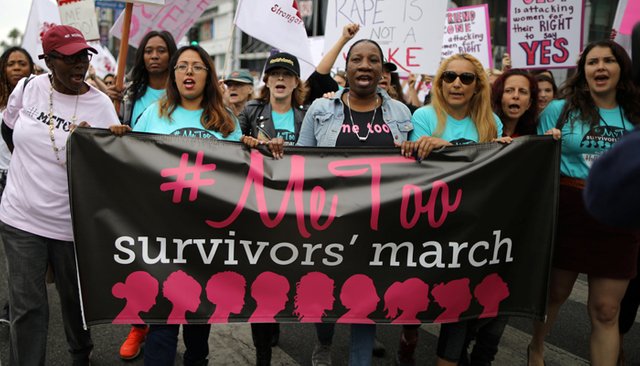Hashtags Heard Around the World. Why #ReclaimYourData is Next?

Institutional and social change has historically been a slow process. However, recent years have seen grassroots movements take flight almost overnight when society reaches a tipping point on certain issues. Let’s take a quick look at a couple of social media driven movements that served as a call to arms, placing an issue front and center to give voice to millions of victims and see if this can’t help us predict the next hashtag global game-changer.
#OccupyWallStreet saw a tent city spring up at the heart of New York’s financial hub, in Zuccotti Park, in September 2011, which led to a global protest against economic inequality and corporate corruption. The #OccupyWallStreet movement hit a nerve in the wake of a global financial crisis, and harsh austerity measures leading to a banking system failure. Those responsible seemed to feel no ill effects. They received a full bailout from taxpayer money, continuing to award themselves bonuses in the millions and behave as recklessly as ever. Headline after headline left people feeling furious and impotent until people had enough.
Six years later, #MeToo spread virally, when Alyssa Milano used twitter to shine a light on issues of sexual assault and harassment. The #MeToo movement highlighted through a single tag, the fact that according to UN data, one in three women has experienced physical or sexual abuse. Women world-over had remained silent for years often with no recourse, if they wanted to protect their careers, but the Harvey Weinstein scandal was the last straw.
What both these movements have in comment is that they picked up on a simmering anger and frustration at seemingly all-powerful opposition, until a breaking point was reached, and that anger spilled over into action.

oday, we are seeing frustration in another quarter. The public has had it with scandal after scandal in the world of data privacy. We’ve weathered storms that include Yahoo’s security breach affecting 3 billion users, which didn’t come to light until their negotiations to be bought out by Verizon; Target’s hack which exposed 110 million customers’ information, which was followed by revised estimates raising the number of affected customers by 40 million and the implementation of insufficient security measures; eBay’s cyber- attack, impacting 145 million users, which exposed a lack of communication with users and a lax approach to security; Equifax’s compromising of over half of all Americans’ data, the full extent of which was not disclosed for a full 6 months after the information was compromised; the Uber breach, affecting 57 million users, and 600,000 drivers that the company did not confess to for an entire year, at which time it was revealed that Uber had paid the hackers to destroy the information, which may or may not have happened, and then of course there is Facebook. The Facebook-Cambridge Analytica scandal compromised the information of approximately 50 million Facebook users, while the “Friends Permission” feature of Facebook’s APIs for 3rd party apps, allowed developers to also collect data on all the user’s Facebook friends.
Each of these events was not only significant for the billions of users they affected, but also for the lack of transparency on the part of the corporate giants that control our data. They have earned hundreds of billions exploiting users’ personal information, while showing a reckless disregard for user privacy.
Data subjects have had enough, and we saw a tipping point in the last couple of months with further revelations about Facebook’s security breaches, which may just be the straw that broke the camel’s back.
.jpeg)
User privacy is an incredibly hot topic right now and among the bad news there is a single ray of light that can be leveraged to drive change. New EU legislation took effect on May 25th, 2018, called the General Data Protection Regulation (GDPR). The GDPR states that the user is the rightful owner of their data and the companies harvesting their information must gain their consent for its use. These companies must also make an electronic copy of the user’s data freely available to them.
The time is ripe for a revolution in advertising arena as users start demanding a new approach to the protection of user data. One other development that is driving change and making an alternative advertising economy a genuine possibility, is blockchain technology. The blockchain allows for greater transparency and security and its decentralized nature opens the door to the creation of a more fair and democratic data marketplace.
Internet users have started to wonder why they don’t get to control who uses their own personal information and how it is used. They want to know whether they can rely on the security and privacy of their data, and why they don’t get a piece of the $230 billion per year digital advertising pie that is based on their data.
A new hashtag has started cropping up, #ReclaimYourData. This is happening at a time when people have started questioning their relationship with the online providers that profit from the use of their data. The corporations have very little incentive to change their ways and the mega-powerful duopoly of Google and Facebook control a vast majority of our information, seemingly without prioritizing the user at all.
The #ReclaimYourData hashtag can be traced back to a non-profit called the Liberdy Data Foundation. The Foundation is on a mission to create a more fair and democratic data economy that harnesses the power of blockchain technology and the new GDPR regulation to completely disrupt the Adtech industry.

The Foundation’s goal is to redress the balance of power in the data marketplace and put the user in control. Its mission statement urges users to seize back control, reclaiming their personal information, demanding fair compensation and standing up for their right to a security and privacy.
Liberdy’s app allows the user to extract the data that the tech giants like Facebook, Amazon and Google are already collecting on them every time they post a comment, make an online purchase or enter a search in their browser. The app then segments and anonymizes the user’s data, removing all personal identifiers so that privacy is maintained. The user then chooses which data they wish to share, with which advertisers.
The use of blockchain technology ensures user privacy and security. It is highly encrypted, and as a completely decentralized system, it disperses the data across the network, so it is not held on a single server, making it almost impossible to hack, with no one entity controlling all the information. Moreover, since all transactions are published on the public ledger, there is total transparency, so the user knows exactly where their data is going. Liberdy further shields user data by providing an anonymous Single Sign On (SSO) that protects user privacy, while also providing publishers with a new consent-based revenue channel.
Liberdy is providing a vehicle for change at just the right time. The stars seem to be aligned with the advent of blockchain technology, new GDPR regulation and the powerful, growing realization that a grassroots movement seeking to protect the interests of the masses from a privileged minority can begin a revolution and genuinely effect change. Those online companies that are continuing to exploit users and show a complete disregard for user privacy, had better watch out because #ReclaimYourData is next.
To learn more check out Liberdy.io, join our communities via Telegram,Twitter, Facebook, or email us at [email protected]
Congratulations @liberdy! You have completed the following achievement on Steemit and have been rewarded with new badge(s) :
Click on the badge to view your Board of Honor.
If you no longer want to receive notifications, reply to this comment with the word
STOPDo not miss the last post from @steemitboard:
SteemitBoard World Cup Contest - The results, the winners and the prizes